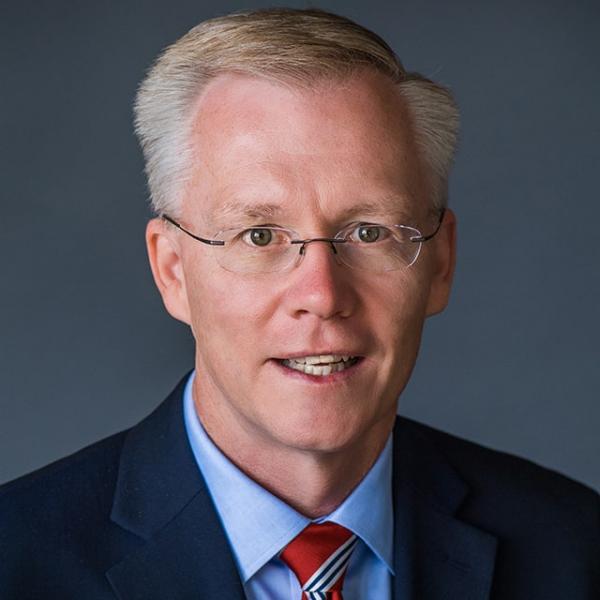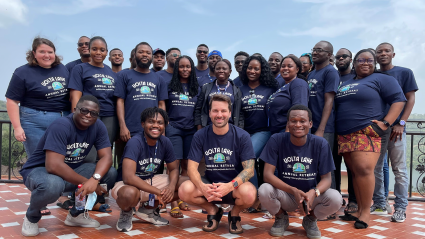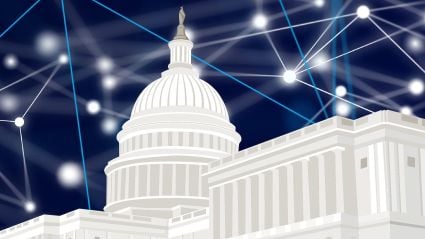
In This Issue
-
Foreword from Milken Institute FinTech Director, Nicole Valentine
-
Inclusion at Scale: Innovative Financial Systems with Jo Ann Barefoot
-
Inclusion by Design: Going Beyond Access with Corey Carlisle
-
Scaling Small Business: Impact and Inclusion with Todd Denbo
-
Reimagining Inclusion through Global Payments with Dante Disparte
-
AI, Robo-Investors, and the Future of Retail Investing with Eric Ghysels
-
Inclusion Impact: AI, Data, and Technology with Melissa Koide
-
Building Inclusion through Market Integrity with Kathy Kraninger
-
Enabling Inclusion with Financial Literacy and Ownership with David Musto
Foreword
Nicole Valentine, FinTech Director, Milken Institute
Throughout the year, the Milken Institute brings FinTech into focus by highlighting the latest news, insights, and research in the industry. Financial inclusion is a guiding principle, an intentional focus area, and an action item on our agenda. In this special edition of FinTech in Focus, we highlight financial inclusion in collaboration with our FinTech Advisory Council. We interviewed our council members and asked them what financial inclusion means to them and their organizations. As part of our programmatic work, we analyze how founders and industry leaders design their products and services to advance financial inclusion, and this report is an opportunity to highlight the many ways FinTech yields a return on impact for end users.
Financial services, leveraging FinTech, have the power to increase access, quality, innovation, and affordability in an industry of an estimated size of $23 trillion. Once solely a disruptive force, FinTech is now driving democratization in the financial sector, often collaborating with incumbent financial players.
As you read the interviews of these thought leaders, including former regulators, academics, and industry professionals from TradFi to DeFi, you will find insights from diverse perspectives, all connecting innovation to scaling FinTech’s impact on people, entrepreneurs, communities, and enterprises.
Financial inclusion should be our priority in moving the future of finance forward.
This is a moment to reflect on the work to expand and include those who are left out of the financial ecosystem. This is an opportunity to raise the bar on what the industry delivers. This is a time when industry can harness technology to close financial gaps. After you’ve read the interviews, including insights into global payments, Web3, AI, robo-investing, and modern retail trading, we welcome your thoughts on how these ideas resonated with you and how your organizations contribute to the financial inclusion movement.
Inclusion At Scale: Innovative Financial Systems
Jo Ann Barefoot, CEO & Co-founder, Alliance for Innovative Regulation; Host, Barefoot Innovation
We asked Jo Ann Barefoot how technology has changed the way we approach financial inclusion. She said, "Technology has the potential to transform financial inclusion and is doing so. The biggest driver of all was the invention of the cell phone, which suddenly made it possible to bring the bank branch to the person instead of only allowing banking to reach people who were in markets that banks found cost-effective to serve with their old distribution systems." Barefoot described how the mobile banking revolution created new access to financial services for consumers, new economies of scale driving down costs for financial service providers, and new avenues to help people qualify for credit.
Over the past decade, these FinTech innovations moved the needle on financial inclusion. Barefoot said, "In 2013, there were 3.6 billion people in the world designated as unbanked; 10 years later, in 2023, we've brought that down to 1.3 billion, of which 400 million are in Africa. Now the question is: How do we get to zero by 2030?"
Digital identity is an area where Barefoot sees an opportunity to bring the next billion people into the financial system: "Right now, the regulatory know-your-customer requirements exclude huge numbers of people from access to a banking account or payments account. As we now increasingly have digital identity and other forms of access and more sophisticated anti-money laundering tools, we're able to widen that opportunity."
Alliance for Innovative Regulation (AIR) is starting a multiyear project on digital identity, considering the potential of the technology to be a driver of financial inclusion. It plans to host a Tech Sprint, which includes conducting research and convening events that look at the work going on worldwide on digital identity in the private and public sectors. Barefoot said, "The challenge with digital identity isn't the technology; it's the human systems, cultures, and legal frameworks. How can we begin to adapt those?"
However, Barefoot told us that building access is not enough: "As soon as you include more people in the system, you have to turn your attention to consumer protection. People who have just come into the system after being excluded are very vulnerable to being preyed upon or to making financial mistakes. There is a huge global need for new models of consumer financial protection."
AIR's mission is to make the financial system more inclusive and fair through technology. As part of that work to build an equitable financial system, AIR has ongoing initiatives to combat corruption, modernize the tech stacks of community development financial institutions and minority depository institutions, leverage better credit underwriting data, address climate issues in financial services, and explore the risks—as well as the opportunities—emerging with generative AI in finance. While a billion people may join the global financial system by 2030, Barefoot is working to ensure it's an ecosystem worth joining: "We can't just include. We must have a system that serves people as well."
Building Trust in Innovative Finance
Richard Berner, Clinical Professor of Management Practice, Department of Finance, and Co-Director, Volatility and Risk Institute, New York University Stern School of Business
Richard Berner sees financial inclusion as an essential goal for society, the economy, and the financial system. He acknowledged that while many people have bank accounts, some are still unbanked and underserved by our financial system. In his experience, financial innovation has been an important tool to promote financial inclusion. Speaking to ways innovation in mobile internet and digital banking have driven inclusion around the globe, Berner said, "We've certainly seen that in other jurisdictions like Kenya and Brazil with M-PESA and Pix, respectively, financial innovation has enabled financial inclusion for people who would otherwise lack access to financial services. There's no reason why we can't have that in the United States as well."
Berner believes that payment modernization and innovation can advance financial inclusion in the US: "It goes without saying our payment systems have lagged behind the rest of the world. They have not been fast. They have not been inclusive. And they have not been cheap. And that's particularly true for cross-border transactions."
While he sees the rollout of new payment initiatives like FedNow as promising, he is concerned about the lack of governance of and regulation for other emerging payment vehicles like some digital assets.
An avowed crypto skeptic, Berner's recent work has focused on the classic goals for financial regulation that are critically needed for digital assets: to protect investors, protect consumers, assure fair and effective markets, safeguard financial stability, and prevent financial crime.
Last October, Berner and co-authors Douglas Elliott and Mahesh Kotecha published a brief on “Investor Protection, Market Integrity, and Financial Stability in Digital Finance” as part of a series by the Digital Finance Project Team of the Bretton Woods Committee's Future of Finance Working Group. The brief emphasized those key regulatory goals and highlighted three guiding principles that should inform digital assets regulation: responsible innovation; same risk, same regulatory outcome; and technology-independent objectives but technology-specific tools.
This April, Berner and co-authors William Coen and Carolyn Wilkins published a second brief in the Bretton Woods Committee group's series on “Addressing Governance Issues in the Crypto Ecosystem.” The brief makes the case for governing the crypto economy with proven governance principles borrowing from traditional finance: same issue, same governance. Thus, before digital assets can be a credible force for financial inclusion, he believes the digital asset industry must:
-
identify and agree on shared codes of conduct and best practices in governance among crypto industry participants,
-
implement high standards for transparency,
-
embrace constructive industry–regulatory engagement, and
-
adopt global coordination among standard setters.
Berner sees regulations that protect consumers and build trust in the system as essential to building financial inclusion. "To promote financial inclusion, you must have trust, and I think we've seen over the past 20 years an erosion of trust in our institutions," Berner said, discussing the policy response to the 2008 financial crisis. "To me, it's no surprise that people trust banks and other financial institutions less today than they did before the financial crisis. I don't think it's any coincidence that the Bitcoin white paper and hunger for it emerged from the ashes of that crisis."
However, Berner is not surprised that these so-called trustless systems that were supposed to reshape the global financial system have been experiencing a crisis of confidence. He stressed that code alone cannot build trust in financial innovation. He sees essential roles for legislators, regulators, advocacy groups, and self-regulatory organizations to create rules of the game that foster best practices, hold bad actors accountable, and build trust. "Our capital markets are deep, broad, efficient, effective, and generally function well. What people must understand is that it is precisely because we have those rules of the game. That's why people trust those markets. That's the whole key."
Inclusion by Design: Going Beyond Access
Corey Carlisle, Head of Public Policy and Social Impact, Varo Bank
We asked Corey Carlisle about how Varo Bank integrates inclusion into its operations. Carlisle told us, "We are focused on a set of customers that have not traditionally been well served by the traditional banking industry. Although we serve all our customers equally, we are most focused on the folks that have traditionally been left behind."
To Carlisle, serving the underserved goes beyond improving access. It means building pathways to wealth creation, finding innovative opportunities to save, and improving financial literacy to empower customers financially. "Traditionally, our regulators and thought leaders generally focused on access. You hear terms like banked, unbanked, or underbanked and a focus on creating basic bank accounts to get consumers into the financial system. For us, that's table stakes. We want to break down those barriers as well, but we want to go beyond that."
Part of how the bank implements that approach is through an inclusively designed platform that creates pathways for financial stability and then wealth building. It does not charge overdraft or account fees, and its platform includes an app that enables customers to round every transaction to the nearest dollar and sweep that margin directly into a savings account. It also allows direct depositors to automatically sweep certain percentages of their paychecks directly into savings accounts. These savings features incentivize customers to engage in habit-forming savings behavior. Carlisle shared, "We know that having a savings cushion is a gateway to higher financial well-being, to absorb potential shocks," which many of their customers face.
Varo also offers its customers products that build and monitor their credit scores, which have become an increasingly important touch point for underserved financial consumers. Its Believe card has helped customers improve their credit scores by up to 40 points on average over six months, and it recently rolled out an option where its customers can see their real-time credit score in their app.
These tools empower customers with the information and ability to get more out of the financial system. Carlisle said, "An improvement of 40 points can mean the difference between lowering the cost of everything in your life, from getting an apartment to insurance. Credit scores are not just used for the provision of credit anymore; it's a necessity. You can have a better life with a higher credit score."
People living paycheck to paycheck need more than help at the individual level from banks and FinTechs. Recognizing this, Varo has joined other leaders in finance, tech, and civil society to call on policymakers to draft a national strategy for financial inclusion, similar to the push for a national strategy on financial literacy a decade ago.
Carlisle said, "We're trying to move that ball forward. Banks are a huge part of people's financial lives, but there are so many other components, whether it's payments from the government, tax, health care, or education. There are a host of policy areas where we can think beyond access, actually making sure that the system works holistically to ensure that everyone has a chance to have financial wealth-building opportunities, fulfill their financial goals, and share in the American Dream."
Scaling Small Business: Impact and Inclusion
Todd Denbo, Vice President and Commercial Leader, Intuit QuickBooks Money Portfolio
We asked Todd Denbo what financial inclusion means to his company. He told us: “Financial inclusion and empowerment are at the core of our mission to power prosperity for small businesses and consumers. We are also guided by one of Intuit’s North Star metrics to increase the success rates of small businesses. This means ensuring that all small businesses have access not only to competitive financing and credit but also tools that will help them better understand key aspects of their business performance, leading to better management decisions and sustained cash flow growth.”
The accelerated shift to digital tools is ushering in a new era of democratization of financial services. This shift can level the playing field, giving every small business owner the knowledge and confidence they need to make smart money decisions. Small businesses are always up against time and face fear, uncertainty, and doubt when it comes to their finances. Innovations that save them time and create efficiencies in their business will be the most beneficial, especially to the smallest of small businesses. Tools that allow businesses to get smarter and leverage their financial data to better understand their books, find new customers, and predict cash flow are some of the more exciting innovations on the horizon that can help power small business' success.
Unlocking the power of alternative data creates more accessible financing opportunities for small businesses. With the growth of FinTech, companies can leverage their depth of data on small businesses to build a more complete financial profile for smaller and historically underserved businesses. Leveraging these data insights, with full transparency and consent from the small business customer, can dramatically improve underwriting, create efficiencies for both the customer and the lender, and increase the types of products and services offered. That allows FinTechs to more accurately assess a business’s creditworthiness and provide access to offerings to the most underserved small businesses. Millions of borrowers who might have been excluded in the past or seen by traditional lenders as too risky an investment can now access critically important financing for their business.
We know through the Intuit QuickBooks Small Business Index Annual Report that funding remains the number one challenge for small businesses. This is particularly true for new small businesses and those owned by women and members of underrepresented racial groups. In the US, small businesses owned by members of underrepresented racial groups are twice as likely to say “getting funding” is their number one challenge. Moreover, 72 percent of men who own small businesses say they can get funding over the next 12 months, compared to only 64 percent of women. By unlocking the power of alternative data, it can create a more inclusive lending ecosystem for all small business owners.
FinTechs will continue to have a beneficial impact in reaching the often underserved and underbanked. Intuit remains committed to working with policymakers to foster a competitive environment where small businesses can continue to access a diverse set of lenders, ensuring they are empowered to make the best financial decisions for themselves and their businesses.
Reimagining Inclusion through Global Payments
Dante Disparte, Chief Strategy Officer and Head of Global Policy, Circle
Advancing financial inclusion is a deeply personal mission for Dante Disparte: "I'm no stranger to the zip code lottery that dictates whether people have access to essential services, including basic financial access. As a result, one of my life's missions is to lower the bottom rung of the ladder of economic mobility, beginning with driving for world-scale open payments powered by emerging technologies and new value chains."
From Disparte's vantage point, he sees FinTech filling essential gaps in coverage left by the traditional financial system: "While technology alone is not a panacea, it often shows us where incumbents and the status quo are falling short. I define the financial inclusion mandate for FinTechs as picking up where brick-and-mortar banking leaves off. If banking continues to hinge on access to traditional bank branches, we will continue to fall woefully behind basic financial inclusion objectives. Simply put, in technological terms, brick and mortar banking has hit a point of diminishing returns."
Underserved and underbanked populations face unique challenges when participating in the traditional financial system. Disparte sees responsible FinTech innovations closing the financial divide, as he explained in Harvard Business Review: "It is expensive to be poor. The global banking and payment system is plagued with a death-by-a-thousand-cuts fee model, where even basic services, many of which enjoy taxpayer-borne public backstops, are expensive. Often, the people who can afford it least pay the most for basic financial activities such as sending, spending, saving, and securing money. Responsible FinTech innovation has continued to drive improvement in basic financial access across the spectrum of economic activities. This should be encouraged and accelerated, especially in payments, where duopolies or veritable monopolies control the movement of money."
Diving into Circle's initiatives to build financial inclusion, Disparte described Circle Impact, which focuses on the pillars of financial access, digital and financial literacy, and humanitarian aid and support for underserved communities to help drive financial prosperity: "We will not rest until every low-cost, internet-connected device in the world becomes a compliant payment endpoint." He shared two of the initiative's projects that show what is possible at the intersection of financial inclusion and FinTech innovation: "First is our digital dollar assistance program designed with Stellar and interoperable with the MoneyGram network supporting Ukrainians displaced by war. This program was launched in partnership with The UN Refugee Agency (UNHCR) and demonstrates the power of universally portable, near-instant digital cash assistance programs. The second major effort in this category is an ongoing project in Venezuela supporting doctors across the country, initially in their COVID-19 response efforts, with near-instant cross-border payments."
As Circle engages with its partners around the world, Disparte underscored the importance of destigmatizing emerging technologies for the provision of basic financial services, which he explored in Diplomatic Courier: "For a world so deeply dependent on technology for any semblance of household, economic, or political continuity, as was revealed by the global pandemic, deeply entrenched technophobia is not only shortsighted but it also precludes the very public-private partnerships that are needed to raise global prosperity and improve outcomes for billions of people. Take the SDGs, for example, the very first of which is to eradicate extreme poverty. How will this be done if billions of people remain out of reach of the formal economy? Responsible FinTech and broad, technology-powered competition can extend the perimeter of the formal economy."
Bringing more people into the global financial system, extending the formal economy's perimeter, and responsibly leveraging emerging technology are imperative to Disparte's vision of a truly inclusive global financial system: "While many are concerned about what risks unchecked FinTech or digital currency growth may represent to the global economy, not nearly enough attention is paid to the risk of doing nothing. Billions of people relegated to the financial shadows—where bad actors, bad outcomes, and bad financial services thrive—is an insidious source of risk. To shine a light on these issues while demonstrating the art of the possible with technology-powered financial inclusion is not competing with the traditional financial system; it is merely completing unfinished work."
AI, Robo-Investors, and the Future of Retail Investing
Eric Ghysels, Edward M. Bernstein Distinguished Professorship of Economics and Professor of Finance, University of North Carolina at Chapel Hill
We spoke with Eric Ghysels about his work at the intersection of AI, investing, and financial inclusion. He sees AI as a tool that can expand access to quality financial advice for retail investors: "We are looking at bringing sound financial advice at a low cost to a broader segment of the population. I think that is something that is sometimes not emphasized when we talk about financial inclusion. Why is investment for retirement a big issue? Why are too many people under-invested or without retirement savings?"
To Ghysels, AI is a powerful tool that can be harnessed to bring down the costs of wealth management and enable more people to save and invest effectively. Ghysels told us that since its introduction, AI has brought down the whole wealth management fee structure: "Wealth management used to be only reserved for the wealthy with heavy fees, but now, with more accessible AI, this cost has come down. Considerably down."
In an interview with the Wall Street Journal, Ghysels shared that AI-powered funds could reduce the costs of human behavior, democratize access to hedge-fund-like financial products, and, in some cases, time stock trades better than individual investors. However, he noted that because of AI's reliance on historical data to make predictions about the future, the tech cannot adapt quickly to market-shifting global events. He cited the examples of COVID-19 and Russia's invasion of Ukraine, where AI-powered investment tools were unable to adapt swiftly to market shocks. Ghysels said that in unusual market conditions, the human mind is creative and thinks out of the box. While AI can sometimes think out of the box, it's not to the same extent that humans can. "Maybe one day it will, but for now, AI is limited to plagiarizing history," Ghysels told us.
Despite these limitations, Ghysels' recent research has identified key areas where AI advisors provide retail investors with measurable benefits. His recent paper in Science Direct, “Artificial Intelligence Alter Egos: Who Might Benefit from Robo-Investing?” with Catherine D'Hondt, Rudy De Winne, and Steve Raymond, used real trading data from brokerage accounts of more than 20,000 individual investors sampled from January 2003 to March 2012. The investors were disaggregated by age, gender, education, annual net income, and risk aversion. In the study, AI-powered robo-investors shadowed the individuals in the data set. The method allowed the researchers to see how investors performed versus what a robo-investor would have done with the same data.
The paper found that the investors who would have benefited the most from switching to AI-driven investment were those with high-risk aversion, people with low incomes, and people with less education. Ghysels said part of the reason AI-driven investments may have outperformed individual investors in the study is that AI lacks the behavioral biases and issues with financial literacy that a retail investor may have when making decisions. As computing power, AI, and data become more widely available and less expensive, solutions like robo-investors and advisors could drive broader participation and access to retail investment.
Digital Assets Reshaping Investment
Colin Jones, CEO and Chief Investment Officer, Outerlands Capital
We talked with Colin Jones about the power of tokenization and the potential inclusive investment solutions he sees in the digital asset ecosystem. Jones told us, "Amalgamating capital has been a cornerstone of economic development for all of time. There's no reason that, with the technology that we have at our disposal, anybody anywhere should be left out of those capital markets." Jones broke down his perspective on inclusive capital markets into five key components: access, variety, security, simplicity, and portability. "Those are the five ways I think about financial inclusion, and if we can deliver on all five of those, then we're really cooking," Jones said.
To Jones, each element works together to enable broad participation in the whole financial system: "It's not just access to savings accounts and insurance products. It's whether you can access public investments or maybe even private investment funds."
He highlighted the need for secure and simple investment vehicles in emerging economies where consumers have limited trust in their financial systems or face hyperinflation. "Not everybody is as lucky as we are to live in America and not have to worry that much about hyperinflation. It's giving people ownership and sovereignty over the value that they've created, which usually translates into some form of wealth, allowing them to participate in the higher return streams that are usually gated off for the people who already have a lot of wealth. That's the real power and why I think digital assets can play an important role in advancing global financial inclusion."
Jones sees digital assets delivering on all these metrics to expand access to capital markets: "We can bring literally billions of people that have been left out of capital markets into the fold. That's a potent, global effect." Jones recognizes that expanding access to higher-risk investment introduces additional complexity. However, he believes that tokenized financial products could offer innovative ways to disperse risk while increasing the variety of financial products available to investors.
One way Jones sees digital assets delivering on the expansion of access is through fractionalization and tokenization: "The problem is when you have a minimum check size to participate in an asset class, like rare art or fine wine or private equity, that immediately narrows the investor universe to a small subset of humanity. Assets can be fractionalized, where a centralized party is buying an asset and then selling off smaller pieces, or tokenized, where the whole asset would be moved into a decentralized token-based platform. This shrinks the check size down so that the number of people that can participate dramatically increases, and we can have communities that go out and aggregate their capital and invest together. It moves the universe of people that can buy Picassos from 100,000 to 7 billion."
While Outerland's inaugural product is a hedge fund, Jones envisions a future where tokenization can open the doors of financial markets to whole new classes of investors. "Someday, we can create a tokenized version of a global risk parity portfolio that will give you access to every asset class across the globe with just a little click of a button on your smartphone, and it could be fractionalized and tokenized so that I could invest 80 cents a week into a broad, diverse portfolio that may be way beyond an unsophisticated investor's scope of understanding. A platform or product like that can enable them to stock away acorns for a long time."
Inclusion Impact: AI, Data, and Technology
Melissa Koide, CEO, FinRegLab
FinRegLab's research on AI and machine learning focuses on informing market practice and policy to promote fair, responsive, and inclusive use of technology across financial services. In her testimony to the Senate Committee on Banking, Housing, and Urban Affairs this September, Melissa Koide said, "Machine learning techniques, particularly in combination with more inclusive data sources, have the potential to make substantial improvements in lenders' ability to predict repayment risks among underserved populations." Her testimony outlined the risks of an AI-powered financial system, including algorithmic transparency, data privacy, and the dangers of perpetuating systemic inequities through biased training data.
FinRegLab has recently launched a new initiative investigating ways to improve credit access for minority-owned companies and other underserved small businesses through nontraditional data sources and mission-based lenders. FinRegLab expects the project to be the first in a series of studies focusing on ways that data and technology can improve financial services for small businesses, which create two out of every three net new jobs in the US and can be a critical path for wealth-building among households of color.
The research project will help evaluate efforts by minority depository institutions, community development financial institutions, and other community-based lenders to explore ways that bank account records and other sources of cash-flow information can be used to scale their lending operations. It will also evaluate the predictiveness of different credit attributes using loan performance data from larger FinTech lenders.
"Increasing credit access among minority business enterprises can help to address racial wealth gaps and spur job creation," said Koide. "This new project will deepen our understanding of how data and technology can be used responsibly to bring credit to millions of small and minority-owned businesses, particularly among mission-based lenders as they adopt new data, technology, and partnerships to broaden their impact."
Building Inclusion through Market Integrity
Kathy L. Kraninger, President and CEO, Florida Bankers Association; Former Vice President of Regulatory Affairs, Solidus Labs
We asked Kathy Kraninger to share her approach to financial inclusion in the current debate surrounding the crypto ecosystem. She described the intersection of crypto market integrity and financial inclusion as it related to her work at Solidus: “The shaping of the crypto ecosystem, when it comes to market integrity, absolutely has a financial inclusion aspect to it. We create the conditions for financial inclusion and the conditions that markets should have in terms of being transparent and fair.” Kraninger sees a genuine interest from cryptocurrency users for an alternative to traditional finance. However, she also recognizes that more work needs to be done to build trust in blockchains as trustless systems to prevent fraud and exploitation.
Kraninger believes that the first step to building an inclusive digital assets economy is combating fraud and illicit activity. Solidus Labs published a series of reports on insider trading, rug pulls, and wash trading in the digital assets ecosystem. Kraninger said the reports ask, “What does manipulation look like in decentralized finance so that people, frankly, can counter it and be aware of it?”
In our conversation, Kraninger also highlighted the importance of civil society organizations in building a trustworthy and resilient digital assets industry. Through her participation in the Crypto Market Integrity Coalition (CMIC), she has advocated for industry cooperation and standard setting like the CMIC Code of Conduct. According to Kraninger, the code builds toward much-needed best practices and standards in the industry: “We have models from traditional finance, but it's about porting them over. You think about hundreds of years of development of law, regulation, industry association, and best practices, and we're at the very beginning of that for crypto. There's a lot you can port over, but there is a lot that's different, particularly as we try to take roles and responsibilities that have been segmented by regulation and combine them for efficiency.”
As Kraninger builds out frameworks for market integrity in crypto, she emphasizes that it is a collaborative process. She asks, “How do we come together as a group on things that we agree need to be moved, coalesce around moving them, and then find the right venue for them?”
Enabling Inclusion with Financial Literacy and Ownership
David K. Musto, Ronald O. Perelman Professor in Finance and Faculty Director, Stevens Center for Innovation in Finance, Wharton School
We spoke with David Musto about how financial literacy and informed financial decision-making are essential to fostering inclusion. Musto's work on inclusion focuses on building financial literacy among marginalized or peripheral communities like immigrants, people who are incarcerated, and young people. Musto shared that teaching financial literacy to these communities requires more than a standard curriculum. To him, effective financial literacy education requires meeting communities where they are, whether that is taking entrepreneurial insights to people behind bars, offering learning materials in multiple languages, or involving communities in the design process of their financial tools. Musto believes that this approach to financial literacy can empower end users with a sense of ownership over their financial decisions.
In addition to his academic work at the University of Pennsylvania, he teaches Finance 2, an online course he designed, in Title 1 high schools nationwide through a partnership with the National Education Equity Lab. The class blends topics about FinTech, civics, and consumer rights to cover material from interest rates to the Social Security trust fund. Wharton MBA teaching fellows join the classes once a week to share their insights and play a mentorship role. Musto hopes to build a Spanish-language version of the class after 11 schools taught the course in Miami-Dade County last year. He said, "We were the only Penn course to be delayed twice by a hurricane."
Musto is currently leading the Finiverse project at the Stevens Center. The project is developing an app to help high school students make informed, data-driven financial decisions about college. Describing the project, he said, "We had this idea to reach out to high school students to build an app to help them think through student loan decisions." The app aims to show students the financial and nonfinancial risks they expose themselves to as they make their educational decisions. The app will allow high schoolers to look at simulations based on their decisions each year of college. Users will be able to plan and track critical statistics like wealth or expected income over time.
Philadelphia high school students code the entire project, from the data retrieval, sourcing, and marketing to the UI and UX design. The students even created the project's working name. Musto said, "They came up with Finiverse because it's finance in the multiverse. It's all these different universes that could branch off from this one decision, and you're getting a peek into each one with these simulations." The project is developed in consultation with the Philadelphia School District and the Pennsylvania Education Authority with the hope of putting the finished product in the hands of educators, college counselors, and students in the state.
The Future of the Internet and Web3
Mo Shaikh, CEO and Co-founder, Aptos Labs
We asked Mo Shaikh how he defines financial inclusion as it relates to FinTech. He said, "Financial inclusion means ensuring everyone can tap into the digital finance boom. Today, there are more digital financial assets than physical ones in our world. Though the rise in digital transactions has been explosive, most still lack tech access or can't afford it. Financial inclusion is about flipping this script: offering affordable, reliable FinTech solutions that widen access globally, especially in underserved communities."
Shaikh shared with us how his immigrant story informs his approach to financial inclusion and his journey to blockchain and decentralized finance: "My first experience of inclusion was immigrating to the US from Pakistan in 1989, where my parents threw my four siblings and myself headfirst into the American Dream. They raised us to be empathetic, hard-working Americans who understand the value of giving back to our communities both at home and abroad. Despite my parents' pleas for me to become a doctor or an engineer, I jumped into a career in financial services—and later blockchain—because I wanted to help my family and so many others access social and economic value. I like to think that it's a noble pursuit and one we're actively working on at Aptos Labs and supporting throughout our global ecosystem."
To Shaikh, the challenges faced by underserved populations require solutions on a global scale: "Today's financial system doesn't cater to our 24/7 world or universal access. We need a radical shift to make finance truly inclusive." Shaikh sees decentralized finance and Web3 as part of that scalable solution: "Our mission is to simplify the entire financial process: sending, receiving, and managing money's value. The DeFi projects we back on the Aptos L1 blockchain leverage the world's best-performing, most reliable enterprise-grade Web3 technology. This allows users to directly access their assets on-chain, transact efficiently, and bypass unnecessary barriers and middlemen fees."
Shaikh recognizes, however, that technology alone is not going to bridge the inclusion gap: "The hard truth is that the path to financial inclusion is not without its challenges. FinTech, including DeFi, hasn't always succeeded in putting people and community first. That's held the industry back from not only onboarding millions to Web3 but successfully bridging the traditional finance-DeFi gap on a local level and global scale. The primary obstacles FinTech encounters include regulatory uncertainty, technological literacy, and cybersecurity risks. To navigate these hurdles, my team emphasizes a proactive approach to regulatory engagement and a robust focus on user education and consumer protection."
The opportunity to build digital access and ownership at scale is a driving force behind Shaikh's vision: "We are committed to the transformative potential of Web3 where people can tap into wider financial access and take greater ownership over creative output." In pursuit of these goals, the company actively advances a fundamental programming language, Move, and expands a global builder community to support major DeFi projects with partners like Franklin Templeton and Microsoft, where it is building bridges between Web2 and Web3 to expand access to financial services on a global scale with inclusion as a priority.
Shaikh has a vision for an internet where all users have an ownership stake. "At Aptos Labs, we humbly see ourselves as navigators of this transformative wave. Our mission is to ensure the digital age's advantages are an inclusive triumph, not an exclusive privilege. Let's collaborate and lead this change."
Web3 Delivering on Inclusion
Ivan Soto-Wright, Co-founder and CEO, MoonPay
We asked Ivan Soto-Wright about how he approaches financial inclusion in the context of FinTech. He said, “When you think about the term ‘finance,’ what probably springs to mind are a whole bunch of barriers: barriers to setting up a bank account, barriers to making cross-border payments, barriers to investing. ‘Financial technology’ is about breaking down these barriers. We innovate finance in order to democratize it. That’s what FinTech is meant to do. There are lots of players in the FinTech sector, many of whom are doing some really exciting things, but financial inclusion should always be the North Star. FinTech is doing what it should when it fosters financial inclusion.”
Soto-Wright’s experience working in traditional finance has informed how he sees technology like blockchain as an important piece of the inclusion conversation: “I’ve worked in institutional finance and have seen some of its flaws. One of the biggest issues is participation: Too many people are unbanked or don’t have a path to financial freedom in our current system. Blockchain is a technological revolution because a digital wallet acts as a bank account for people who otherwise can’t participate in traditional finance. When I first saw the power of this technology, I immediately committed to spending the rest of my career trying to develop it further.”
Soto-Wright shared that one of the hurdles to financial access faced by underserved populations is the monopolization of services by large institutions: “In some cases, this may be a bank; in others, it’s a government. In the case of cross-border payments, it’s one or two players who dominate the entire global market. When these institutions have too much power, they tend to shut people out. Innovative FinTech helps people get around this issue by providing direct access to financial services.”
Web3’s capacity to build access and disintermediate financial services is key to MoonPay’s mission. “Our aim is to unlock digital ownership for everyone, and we’re doing that by building the world’s leading Web3 infrastructure,” Soto-Wright said. “When it comes to financial inclusion, Web3 has more potential than perhaps anything we’ve ever seen, but providing access to Web3 is itself a challenge given how young the industry is. There are many barriers to adoption, such as education and security concerns, but perhaps the biggest barrier is user experience. Web3 can be challenging for newcomers, and we’re changing that by building products that make access as seamless as possible.”
The promise of Web3 is an online experience that offers participants ownership over their data. We asked Soto-Wright how other emerging technologies like AI are shaping the Web3 experience. “In some ways, these technologies will complement each other, and in others, they’ll counterbalance one another,” he said. “For example, AI will complement Web3 by speeding up innovation. We’ll see newer and better Web3 products being released more quickly due to AI being leveraged for everything from coding to front-end development. But blockchain will also counterbalance some of AI’s negative outcomes, such as the inevitable surge of deep fakes. As we see more AI-generated fake content, consumers will demand more authenticity, and brands will seek to protect their IP. Those things can only be guaranteed by blockchain, so in that way, blockchain could act as a counterweight to AI.”
Soto-Wright explained how Web3 technology is already making a difference in emerging economies: “The way remittances work nowadays is an artifact of our current financial system. Just a few money transfer operators dominate the market, and governments can block cross-border payments on a whim. We’ve already seen how Web3 solves this. On MoonPay’s blog, we shared stories about how some of the world's unbanked, which numbers almost 2 billion, are receiving crypto payments from loved ones abroad. People in countries with extremely devalued currencies, such as Venezuela, can also send and receive value via blockchain. The technology is still emerging, but it’s already changing lives.”
In Soto-Wright’s view, the Web3 industry lays the foundation for broader access to financial services: “In an ideal world, everyone will have equal access to financial services. We’re not there yet, but the amount of change we’ve seen in just the last decade is extraordinary and tremendously encouraging. MoonPay wants to accelerate that change by taking Web3 mainstream. We’re integrating our technology into the touchpoints that are attracting people to this space, and the progress we’re seeing along the way is exponential.”
Modern Retail Trading
Chester Spatt, Pamela R. and Kenneth B. Dunn Professor of Finance, Tepper School of Business, Carnegie Mellon University
We asked Chester Spatt about his perspectives on advancing financial inclusion. He shared how his time as chief economist at the Securities and Exchange Commission (SEC) shaped his work in retail trading: “I dealt with many issues that touch on financial inclusion and retail investors. Much of the orientation of the SEC is specifically about impacts on retail investors, even more so than institutional investors. Many of the issues on its agenda were issues of tremendous interest and importance to retail.” During his time at the SEC, Spatt dealt with issues that affected retail participants, such as mutual fund market timing and the structure of equity trading.
He has continued studying issues and changes related to securities market structure, largely from the perspective of retail traders. Spatt told us that "Retail is all about financial inclusion." He described how deregulation and FinTech have fueled the rise of zero-commission trading and increased retail participation in equity markets: "Market competition has often brought commissions down to zero. This has been a major change in the last couple of years."
One element of the zero-commission environment that Spatt studies is payment for order flow (PFOF). PFOF is the compensation a broker receives for routing trades for trade execution to a particular market maker. Spatt described PFOF as "Offering another viable way for brokers to be compensated, which has been important to the retail customer experience, providing a mechanism to eliminate commissions." While PFOF has enabled zero-commission retail trading, it also potentially creates distortions in the trading process.
The PFOF issue came to a head during the 2021 GameStop short squeeze. Spatt spoke with CNBC about the SEC's role in restoring market confidence after retail brokers, like Robinhood, imposed trading limits on GameStop stock during the frenzy as a by-product of margin limits placed upon Robinhood. The short squeeze sparked multiple congressional hearings in early 2021 as lawmakers questioned the PFOF model.
Spatt's recent work examines how these new market conditions are affecting retail investors. The SSRN paper "Would Order-by-Order Auctions Be Competitive?" co-authored with Thomas Ernst and Jian Sun, examines the competitiveness of order-by-order auctions required under the SEC's 2022 proposal, which would be required for retail trades. This was motivated in part to address PFOF. Market structure issues cost retail investors billions every year and have become far more consequential as more retail investors enter public markets.
Acknowledgments
The FinTech team would like to thank Michael Piwowar for his advice and support as we continue to develop impactful work for the council. We appreciate his regulatory and policymaking expertise and look forward to further adding value to the responsible development of the digital assets industry and AI in finance.
We also thank Tom Curry, former comptroller of the currency, who is stepping down from the council, for his years of leadership as chair since the council’s inception.






